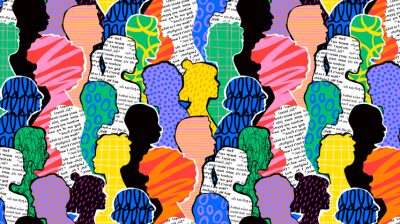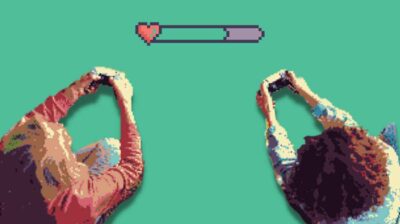How to start your mental health recovery journey
Starting your mental health recovery journey can be daunting, but learning about your support options can help you build a recovery plan.

Mental health issues can have a significant impact on how you feel, make day-to-day activities more challenging, and hold you back from achieving your goals. Mental health recovery is a process of learning, healing and growing that empowers you to live the life you want to live without being restricted by mental health challenges. People often describe this process as a journey. Every mental health journey is unique and personal to the individual. Recovery comes with ups and downs, and your attitudes, values and beliefs may change along the way.
Whether you’re considering starting your own recovery journey, or you have been working on recovery for some time, the process can feel really daunting and confusing at times. While recovery can be challenging, you deserve to live happily and healthily, and recovery is possible. If you want to start your own recovery journey but don’t know where to start, or you feel stuck in your recovery journey, this article outlines information and resources that can support your mental health recovery.
How to set mental health recovery goals
Mental health recovery is a personal process. Different people have different recovery goals and the supports that someone else needs to recover might not be what you need. If you are embarking on a recovery journey, it can be helpful to first reflect on what issues you’re dealing with, what you would like to change, and how you would like your future to look. This can help you set goals to work towards and identify what supports can help you reach those goals. Some of these goals may be more short-term, like opening up to someone about your mental health issues, and others may be longer-term, like building your self-esteem.
Believing that recovery is possible is an important first step on your recovery journey, so it helps to begin by taking time to imagine what recovery might look like for you. Believing that you deserve to be happier and to live more freely than you are now isn’t always easy. When you’re experiencing mental health issues, it can feel like things will never get better or that you don’t have what it takes to recover, but you can recover with the right support.
Here are some questions you can ask yourself to start planning your mental health journey. You can write your answers down for yourself if you find that helpful. You may also want to share some of your answers with a friend or family member or a mental health professional at some point in your recovery journey.
- What mental health issues am I facing right now?
- What aspects of my mental health issues are the most difficult to deal with?
- What things in my life am I keeping in or hiding from others?
- What things in my life support my mental health?
- What things in my life have a negative impact on my mental health?
- What things would I like to change in my life?
- What would I like my future to look like?
- What would recovery look like for me?
- What types of mental health support am I open to trying?
Thinking about the questions above can help you decide what direction you want to go on your recovery journey. You can start building a plan for your mental health recovery by setting some goals to work towards. The questions above can also be helpful if you’ve been on a recovery journey for a while and are feeling stuck. Recovery isn’t linear, and it can be really helpful to check in with yourself from time to time to reflect on how far you’ve come and where you would like to get to. It’s ok for your recovery goals to change as you learn more about yourself and your mental health.
No matter what stage you’re at, you are in control of your own recovery, but you never have to do it alone. Your first recovery goals could involve reaching out to a friend or family member, or a mental health professional to get some support. If you don’t feel like you want to talk to someone you know, an anonymous support line like our 24/7 text service, TextAboutIt, can be helpful. Opening up about your mental health can be difficult and scary, especially if you haven’t done it before, but for many people, talking to someone can be a really important step. You can read this article on how to talk to someone about your mental health to learn more about the topic. Friends, family members, or mental health professionals can help you develop a recovery plan that suits your life, meets your needs, and helps you reach your goals.
What is a mental health recovery plan?
A mental health recovery plan is a roadmap that helps you break your recovery journey down into manageable steps. Creating a recovery plan can give you a structure to your recovery that is tailored to your experiences and reflects what matters to you.
A recovery plan can cover topics like:
- Personal goals that can support your wellbeing
- Clear steps you can take to reach goals
- Your personal interests and strengths
- Triggers or things that negatively impact your mental health
- Daily activities that support your wellbeing
- Signs that your mental health is improving
- Early warning signs that your mental health is getting worse
- A crisis plan for challenging times; which can include things like mental health signs to look out for, who your mental health supporters are and how they can help you, and your preferred treatments.
Mental health recovery works well when people work together in partnership; you don’t have to build your recovery plan on your own. People usually work together with members of their formal and informal support networks to come up with a plan that works for them. When a plan is developed in this way, it benefits from the combination of everyone’s knowledge, learning and experience.
How can friends and family support my recovery?
For many people, friends, family and community play an important role in their recovery journey. The people in your life can support your recovery in a number of ways. They can offer practical support like going with you to doctor appointments or can schedule activities with you like going for walks or meeting for coffee. They can also support you just by being there, checking in, and listening to you. One of the ways that a friend or family member can better support your recovery is by learning more about mental health recovery. They may find our article on how to support a loved one’s recovery journey helpful.
You can help a friend or family member support you better by being open about what you’re experiencing and being clear about how you would like them to support you. Letting them know what you need from them will help them to understand how to be there for you.
It’s not always easy to accept help and support from friends and family, especially if you have spent a long time dealing with issues on your own. It can be uncomfortable at first, but allowing the people in your life to be a part of your journey could really help your recovery. It can also bring you closer together and help you to understand one another.
Not everyone who recovers from mental health issues has support from the people in their life. You are in control of your story and experience. Who you share your story with and when you share it is your choice. If you don’t trust a friend or family member, or you don’t think they would respond in a helpful way, you don’t have to include them in your recovery.
How can professional mental health treatment support my recovery?
If you’re living with mental health issues, getting support from someone who is trained in delivering evidence-based mental health treatments can support you in your recovery journey. There are many different types of mental health support available to people in Ireland, including individual therapy, group therapy, medication, peer support groups, and inpatient treatment.
If you’re having mental health issues, the thought of getting professional support can be scary, so taking the first step takes courage. There is a wide range of mental health supports available in Ireland, but it can be difficult to know how to access them and which type of support is best suited to your needs at first. Everyone is unique, so people will have different routes through the healthcare system. Learning about what treatments work best for different issues will help you navigate your own mental health recovery journey.
Feeling overwhelmed and want to talk to someone?
- Get anonymous support 24/7 with our text message support service
- Connect with a trained volunteer who will listen to you, and help you to move forward feeling better
- Whatsapp us now or free-text SPUNOUT to 50808 to begin.
- Find out more about our text message support service
If you are a customer of the 48 or An Post network or cannot get through using the ‘50808’ short code please text HELLO to 086 1800 280 (standard message rates may apply). Some smaller networks do not support short codes like ‘50808’.






